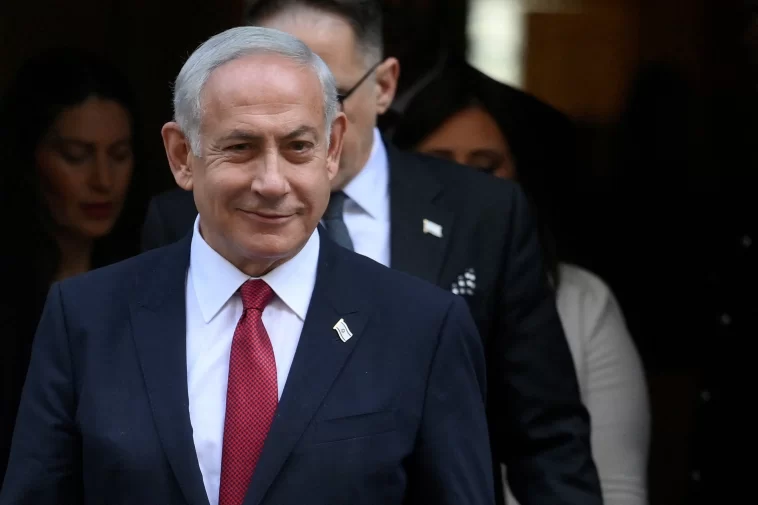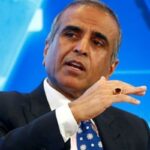Tens of thousands of Israelis took to the streets in cities across the country on Sunday night in a spontaneous outburst of rage after Prime Minister Benjamin Netanyahu dismissed his defense minister for opposing the Israeli leader’s judicial reform plan.
Protesters in Tel Aviv blocked a major highway and lit large bonfires, while in Jerusalem protesters clashed with police outside Netanyahu’s residence.
The unrest exacerbated a months-long crisis caused by Netanyahu’s plan to overhaul the judiciary, which has sparked mass protests, alarmed business leaders and former security officials, and prompted concern from the United States and other close allies.
Netanyahu’s dismissal of Defense Minister Yoav Gallant indicated that he and his allies will move forward with the reform plan this week. Gallant was the first senior member of the ruling Likud party to voice out against it, stating that the deep divisions posed a threat to the military’s strength.
However, as throngs of demonstrators flooded the streets late at night, Likud ministers began indicating a willingness to slow down. Netanyahu confidant and Minister of Culture Micky Zohar stated that the party would support Netanyahu if he decided to postpone the judicial reform.
In a brief statement issued late Sunday, Netanyahu’s administration announced the dismissal of Gallant. Later, Netanyahu tweeted, “We must all take a stand against refusal.” After Netanyahu’s announcement, tens of thousands of Israelis took to the streets in protest, blocking Tel Aviv’s main artery, covering the Ayalon highway in blue-and-white Israeli flags, and lighting a large bonfire in the center of the road.
Thousands of people demonstrated in Beersheba, Haifa, and Jerusalem, where they congregated in front of Netanyahu’s private residence. The police fought with protesters and sprayed the throng with water from a water cannon.
Inon Aizik, 27, stated that he came to demonstrate in front of Netanyahu’s private residence in the heart of Jerusalem because “bad things are happening in this country,” referring to the judicial reform as “a quick legislative blitz.” Netanyahu’s decision came less than a day after Gallant, a former senior general, urged for a delay of the controversial legislation until after the Independence Day holidays next month, citing unrest in the military ranks.
Gallant had expressed concern that social divisions were lowering military morale and emboldening Israel’s adversaries. Gallant stated, “I see how the source of our strength is eroding.”
Despite the fact that a number of other Likud members had indicated they might follow Gallant, the party united swiftly on Sunday, paving the way for his dismissal.
Netanyahu’s minister of public diplomacy, Galit Distal Atbaryan, stated that Netanyahu summoned Gallant to his office and informed him, “that he no longer has faith in him and is therefore fired.” Shortly after the announcement, Gallant tweeted, “The security of the state of Israel has always been and will continue to be my life’s mission.” Yair Lapid, leader of the opposition, stated that Gallant’s dismissal “harms national security and disregards all defense officials’ warnings.” Assaf Zamir, the consul general of Israel in New York City, resigned in protest.
Former Shin Bet director Avi Dichter is anticipated to assume his position. According to reports, Dichter had considered joining Gallant, but on Sunday he declared his support for the prime minister.
This week, Netanyahu’s government is pushing for a parliamentary vote on the overhaul’s linchpin: a law that would give the governing coalition the ultimate say over all judicial appointments. It also attempts to enact legislation that would give parliament the authority to overturn Supreme Court decisions with a simple majority and restrict judicial review of laws.
The proposal, according to Benjamin Netanyahu and his allies, will restore the balance between the judicial and executive branches and rein in an interventionist court with liberal leanings.
Critics, however, assert that the constellation of laws will eliminate democratic checks and balances in Israel and concentrate power in the hands of the governing coalition. In addition, they assert that Netanyahu, who is currently on trial for corruption, has a conflict of interest.
During the past three months, tens of thousands of people have demonstrated against the proposal in the largest demonstrations in the country’s 75-year history.
Former top security officials and critical allies, including the United States and Germany, have voiced their opposition to the plan.
Even within Israel’s army, the most popular and respected institution among Israel’s Jewish majority, discontent has increased in recent weeks. In recent weeks, an increasing number of Israeli reservists, including fighter pilots, have threatened to disengage from voluntary duty.
The Israeli military is confronting an escalation in violence in the occupied West Bank, threats from Lebanon’s Hezbollah militant group, and fears that archenemy Iran is close to acquiring nuclear weapons.
In recent weeks, violence in Israel and the occupied West Bank has reached levels not seen in years.
The director of an influential Israeli think tank, the Institute for National Security Studies, Manuel Trajtenberg, stated, “Netanyahu can dismiss his defense minister, but he cannot dismiss the warnings he received from Gallant.” In the meantime, an Israeli good governance group petitioned the country’s Supreme Court on Sunday to penalize Netanyahu for allegedly violating a conflict-of-interest agreement intended to prevent him from interacting with the judiciary while he is on trial for corruption.
The Movement for Quality Government in Israel, a vehement opponent of the reform, petitioned the court to order Netanyahu to comply with the law or face a fine or imprisonment. It stated that he was not beyond the law.
“A prime minister Benjamin Netanyahu who disobeys the court and the provisions of the law is privileged and an anarchist,” the group’s leader, Eliad Shraga, said, echoing language used by Netanyahu and his allies against demonstrators opposed to the reform. “The prime minister will be required to genuflect before the law and abide by its provisions.” The prime minister responded by stating that the Supreme Court had no grounds to intervene and dismissing the appeal.
Benjamin Netanyahu is prohibited by the country’s attorney general from directly dealing with his government’s plan to overhaul the judiciary due to a conflict of interest agreement to which he is bound, and which the Supreme Court acknowledged in its ruling regarding Netanyahu’s fitness to serve while on trial for corruption. Instead, Netanyahu’s close confidant, Justice Minister Yariv Levin, is spearheading the reform.
But on Thursday, after parliament enacted a law making it more difficult to remove a sitting prime minister, Netanyahu declared that he was freed from the attorney general’s decision and vowed to intervene in the crisis and “heal the nation’s rift.” This declaration prompted the attorney general, Gali Baharav-Miara, to warn that Benjamin Netanyahu was violating his agreement regarding conflicts of interest.
Guy Lurie, a research fellow at the Israel Democracy Institute, a Jerusalem-based think tank, stated that rapid legal and political developments have propelled Israel into uncharted territory and toward a growing constitutional crisis.
“We are at the beginning of a constitutional crisis in the sense that there is a dispute over the authority and legitimacy of various governing bodies,” he stated.
Also read this:Former Pakistani PM Imran Khan urges international community to recognize the Taliban
Benjamin Netanyahu is charged with fraud, breach of trust, and accepting bribes in three separate affairs involving affluent associates and influential media moguls. He denies wrongdoing and refutes his detractors’ claims that he will attempt to evade the charges through the legal overhaul.




